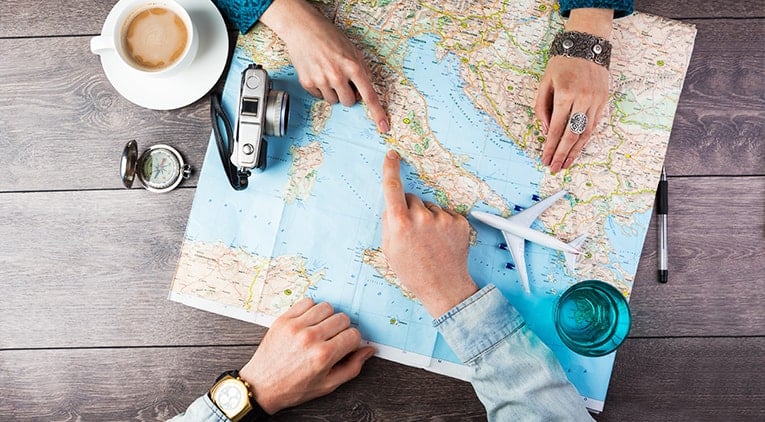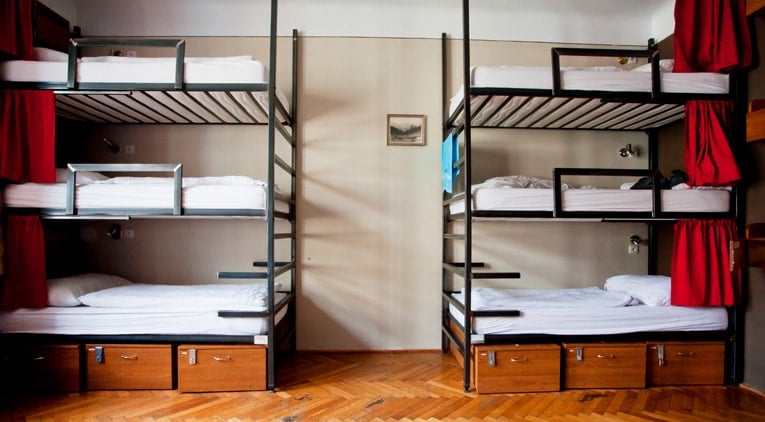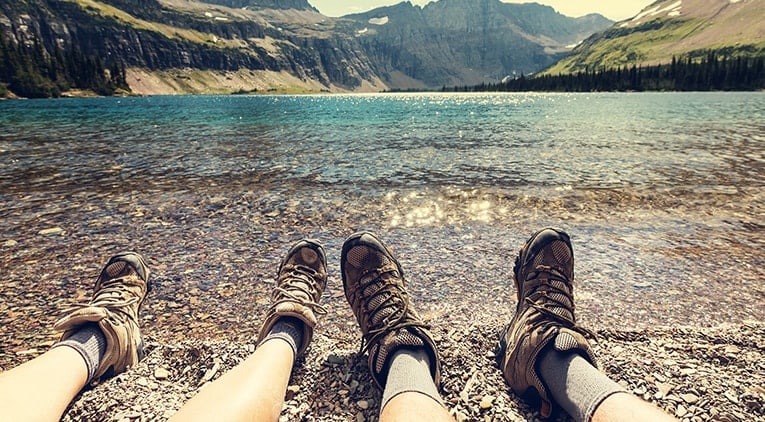

Taking a short holiday is easy. You do the minimum of planning, the minimum of saving, and you go away for a few weeks and have a lot of fun. No problem.
But long-term travel isn’t a holiday. If you’re planning on heading off for anything more than a month, there are a few things you need to think about.
By The Secret Traveller

This is probably about the most important thing you can do. If you’re travelling for a long period of time it’s essential that you stick to a budget, otherwise your money will disappear as quickly as that beer sitting in front of you. Spend time making a reasonable budget, and then stick to it.

Another essential. It’s the old saying: take the amount of money you think you’ll need, and then double it. Then you’re getting close. Long-term travel is no fun when you’re constantly worrying about money.

It’s nice to have a rough idea of where you want to go and what you want to do, but the secret to successful long-term travel is to keep your options open. Some amazing opportunities will inevitably present themselves to you during this trip. Make sure you’re open to them.

Just because you’re going for a long time, doesn’t mean you need a lot of clothes. You need enough to get you through about 10 days at the most. Then you’ll find a washing machine. Anything more than that will be a nightmare to carry around. Anything less and you’ll be pretty stinky.

Before you leave home, do a quick search to find out which countries you’ll need visas to enter. This is usually easier to organise at home, although it’s worth checking on how long you’ll have to enter each country before those visas expire.

Unless you really fancy having a root canal done in, say, Burma, or checking out the level of hospital care in Malawi, you need to go see your GP and your dentist before you leave home. That will clear up any problems that might be hanging around. You’ll also need a few vaccinations.

You travel to get away from the cares of home, so the ultimate way to travel long-term is to completely free yourself from any commitments, and that includes a job. It’s scary, but it’s worth it. You’ll never look back.

The constant grind of life on the road can take its toll after a while – all those bus rides, all that haggling, all the weird food – so it’s worth planning to take a holiday from your holiday. Book yourself into a nice hotel for a few nights, or just stay in one spot for a couple of weeks. It’ll re-energise you for the experiences ahead.

How are you going to access your money overseas? Do you have a back-up plan? Are you locking in currency exchanges with a travel money card, or taking your chances as you go? Will you have to pay bills while you’re away? How are you going to do that? These are all things to consider.

If you’re going to five or six or seven or even more countries, the last thing you want to be doing is lugging around a guidebook for each one of them. To lighten your load, download digital copies of the guidebooks to your Kindle or iPad.

The great thing about a long-term trip is that you can afford to take things slow. Find somewhere you like? Stay a few weeks. Or a month. Get to really know places. Get more involved than a normal tourist would.

When you’re planning your trip and sketching out an itinerary, it’s important to think about the seasons you’ll be travelling in. Some places get extremely cold during winter, with almost no sunlight; others are unbearably hot and humid in summer. Plan accordingly.

Hostels are a great way to meet people, but if you’re on the road for a long time it can be nice to stay somewhere with a kitchen, and a washing machine, and a few of the comforts of home. Check out couch-surfing options, or other house-share accommodation.

You’re travelling for a long, long time. You’re going to be hanging out with your travel buddies 24-7. You’re going to be living in each other’s pockets. These relationships could define the success or failure of the whole venture.

A nice way of keeping yourself in touch with reality, as well as getting to know the place you’re travelling through, is to work or volunteer in another community. It’s also a handy way to top up your finances.

Eating out is part of the travel experience, but you’ll find that after a few weeks you’ll be craving a home-cooked meal. Don’t be afraid to head down to the local supermarket, stock up on provisions and cook yourself something nice back at the hostel. This is also a budget-friendly option.

I call it “the wilderness years” – the time you spend travelling in far-flung places when you have absolutely no idea what’s happening in the rest of the world. Thanks to the internet though, it’s not hard to keep up with the news, and it’s worth doing, just so you know what everyone else is on about when you get home.

Eat, drink, sleep, repeat. That’s what long-term travel can feel like sometimes. Break it up by going for a run, or a hike, or a cycle, to ensure you don’t come home the size of a house.

You’ve got all the time in the world, right? So spend a few weeks, or a month, doing a language course while you’re on the road. It’ll help you see a new side to your destination of choice, and raise you above the average tourist.

Every day you see things that amaze you – so many things, in fact, that they soon blur into each other and you forget what happened where. One of the ways to combat this is to keep the modern form of a travel diary: a blog.
 Want to save money while you’re out on the road? This is what you need to know.
Want to save money while you’re out on the road? This is what you need to know.
 Staying in a dorm room? Here's how to really annoy the people you're sharing with.
Staying in a dorm room? Here's how to really annoy the people you're sharing with.
 If you have ticked any of these off your list, then you’re our kind of traveller.
If you have ticked any of these off your list, then you’re our kind of traveller.
 It pays to know where you can get a decent coffee, and it's not always easy.
It pays to know where you can get a decent coffee, and it's not always easy.
Have a fun, safe & enjoyable holiday with our guide to staying safe in Bali.
1Cover’s UK Survival Guide is packed full handy hints, tips and tricks from those in the know.